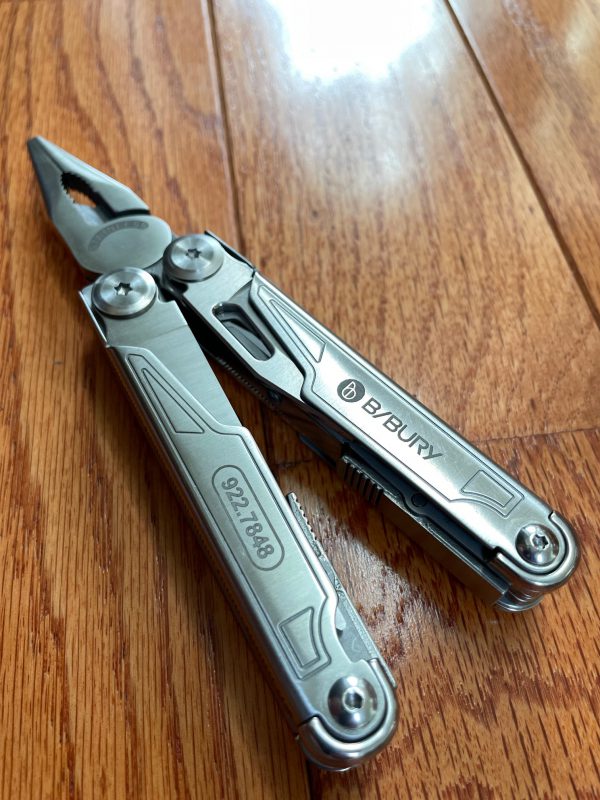
REVIEW – When I started engineering college in 1984, a requirement was to carry pliers, screwdrivers, and a knife to every lab. I scrimped and saved to buy my first multitool, a Leatherman PST, to lighten my load and have carried one in my pocket every day since. Now, Bibury’s new 19-in-one multitool has EDC “every day carry” written all over it…
What is it?
The Bibury Pliers 19-in-1 Multi-tool is a pocketable, stainless steel, folding multi-tool that houses 19 useful tools that lock in place during use.
Hardware Specs:
- 4-inches inches in length (10cm)
- Expanded length 6.7-inches (17cm)
- Width 1.6-inches (4cm)
- 420J2 Stainless Steel construction
- 9.95Oz (265gr)
- Locking tools
What’s in the Box?
- 19-in-1 multi-tool
- Nylon sheath
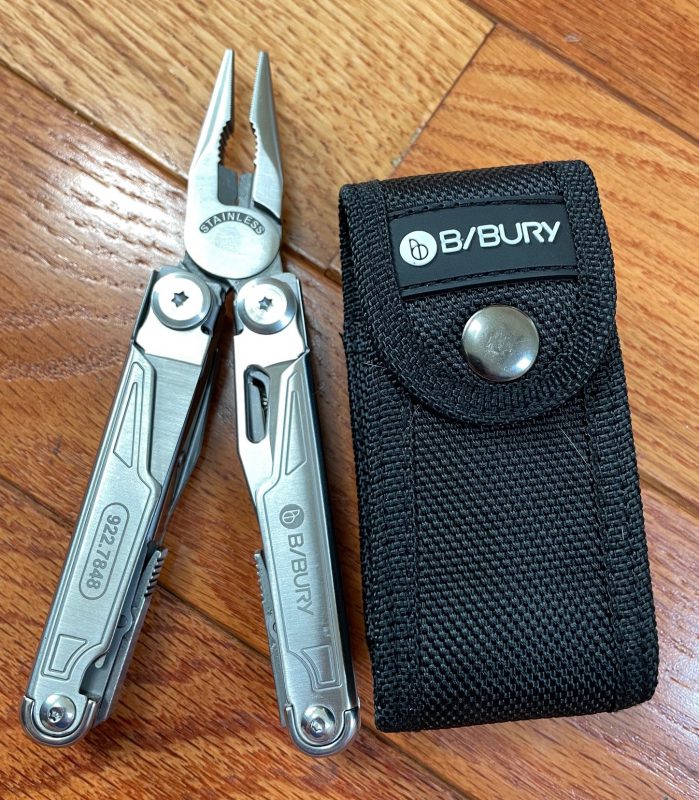
Design and Features:
The multi-tool arrived in a cardboard box with minimal packaging. Its sturdy construction doesn’t need much to keep it safe from bumps and bruises. In fact, it’s more or less built to handle abuse.
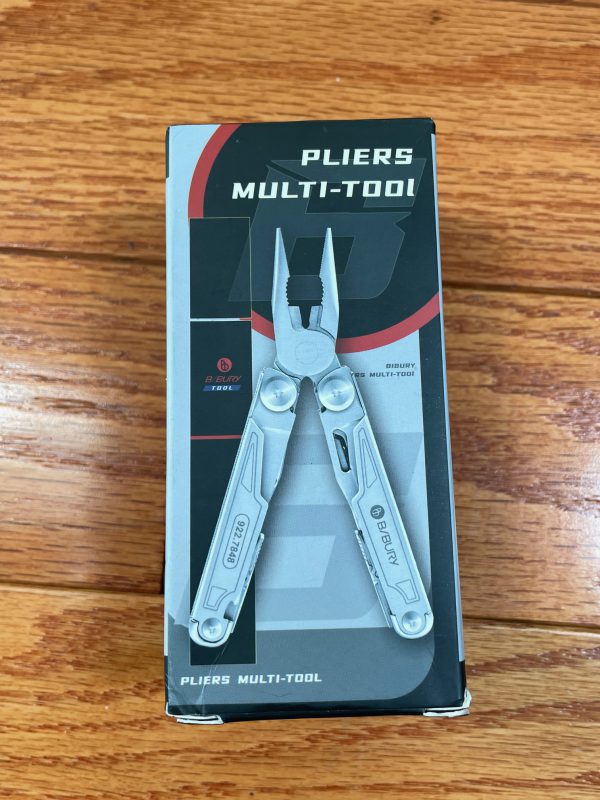
Tools enclosed in the multi-tool are:
- Needle Nose pliers
- “Regular” pliers
- Wire cutters
- Heavy-gauge wire cutters
- Wire stripping blade
- Can Opener
- Mini “eyeglass-style” screwdriver
- Large slotted screwdriver
- Scissors
- Serrated “rope cutting” knife blade
- Wood saw
- 3-inch knife blade
- Metal and diamond coated files
- ¼-inch bit socket with double-sided slotted and Phillips screwdriver bit
- 8-inch/20cm ruler
- Crimpers
The tool feels solid in my hand, not too big or too small.
Construction is solid. I noticed that the tool handles are a little out of alignment when closed, but it didn’t appear to affect usage or performance.
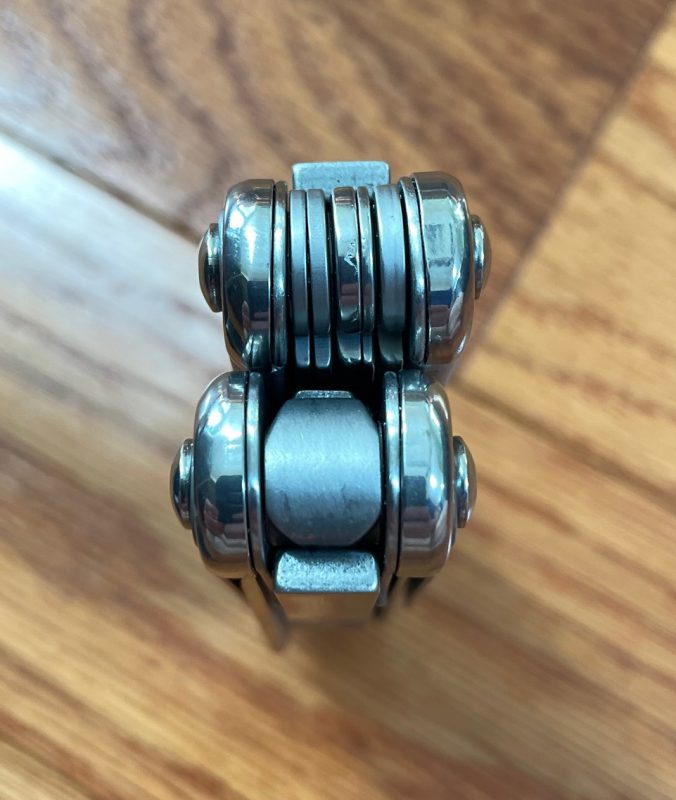
Tool arrangement is very similar to the Leatherman Wave or Charge multi-tools.
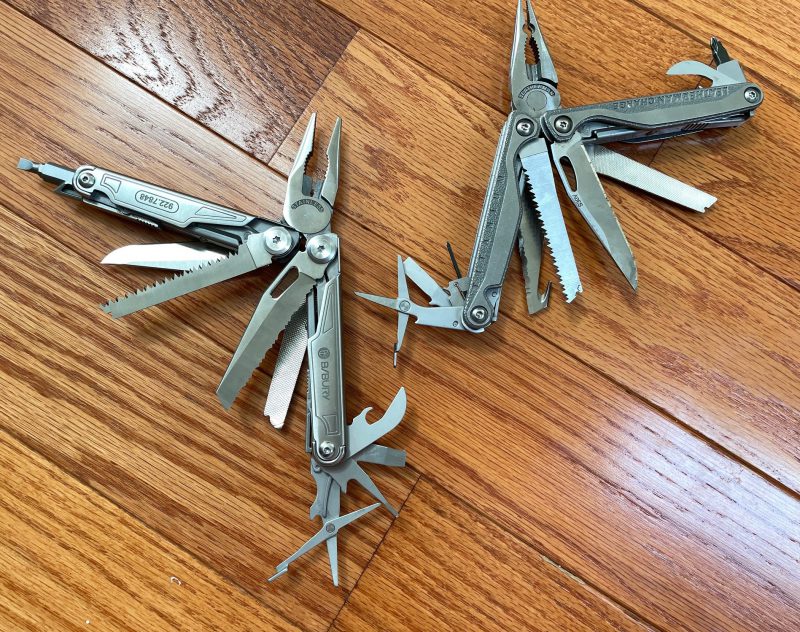
Each tool locks in place using a liner-lock for external tools…
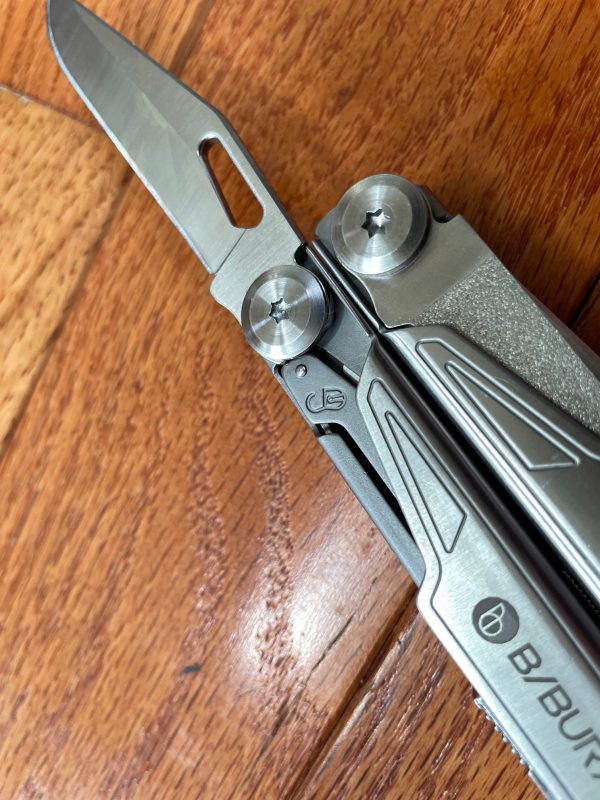
Or back-lock for internal tools.
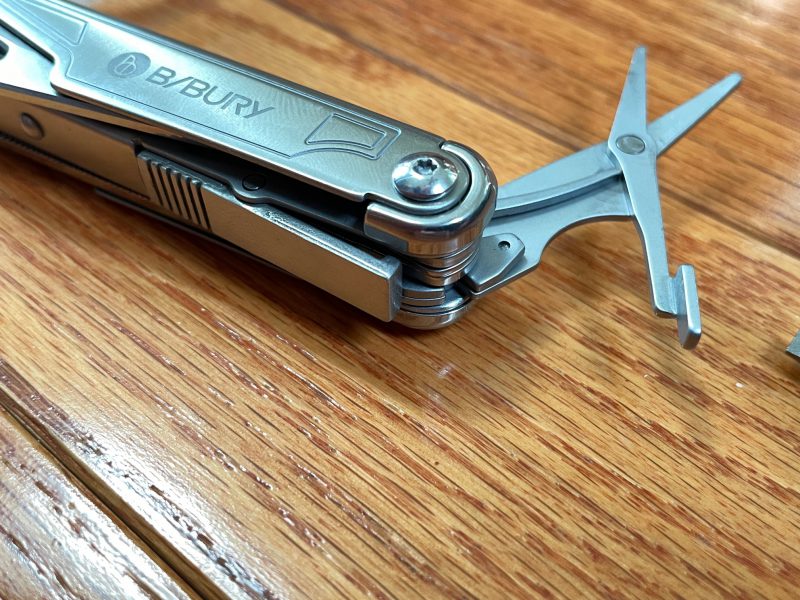
The serrated and drop point knives, files, and wood saw open with the tool handles closed. All lock in place with a spring mechanism built into the liner. I noticed that the tools need to be pressed open fully to ensure the liner locks fully engage. Once fully locked, there is no play or slop on the blades. To unlock the tools to fold them back into the tool handle, the liner lock must be pressed before the implement can be closed.
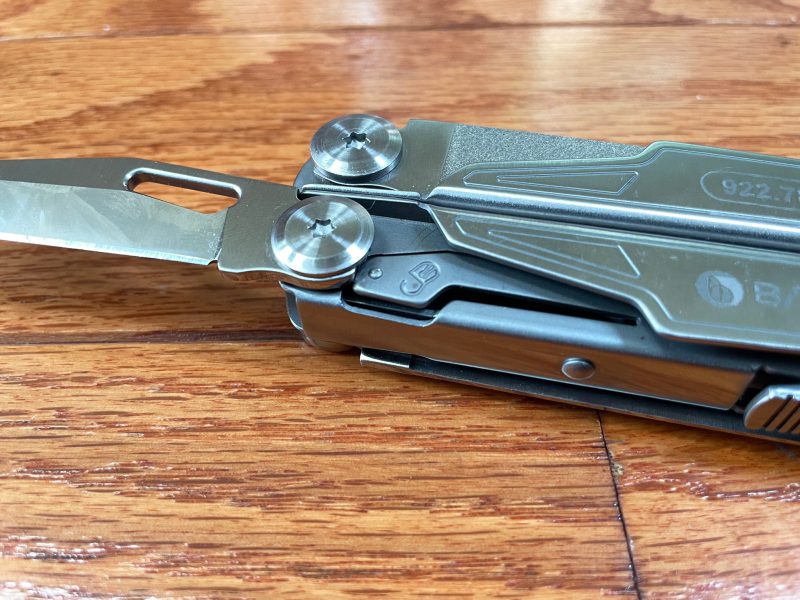
The two knife blades can be opened one-handed, thanks to thumb holes.
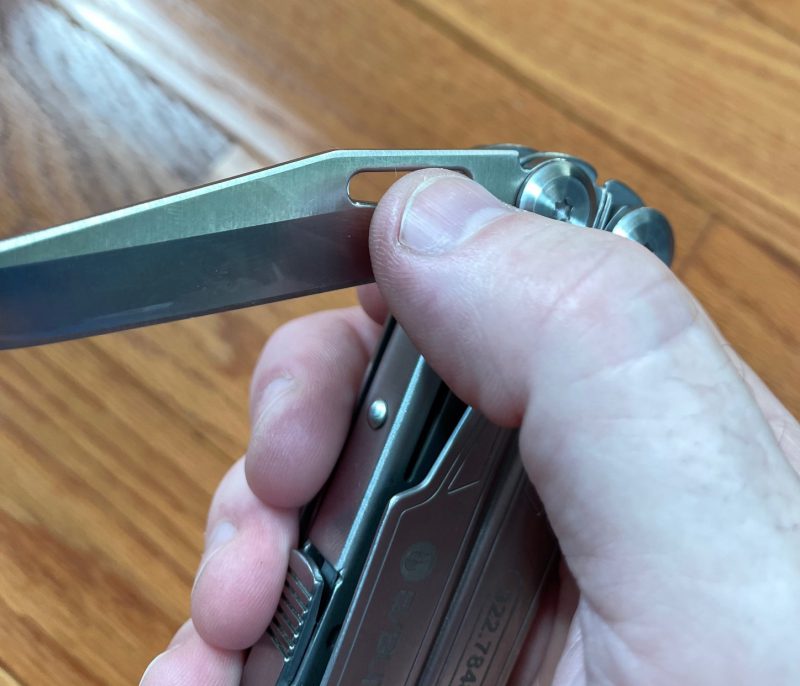
I had a bit of trouble fishing the nail notch of the saw and file out far enough to deploy the tool due to a combination of my short fingernails and the depth of the tools when at rest.
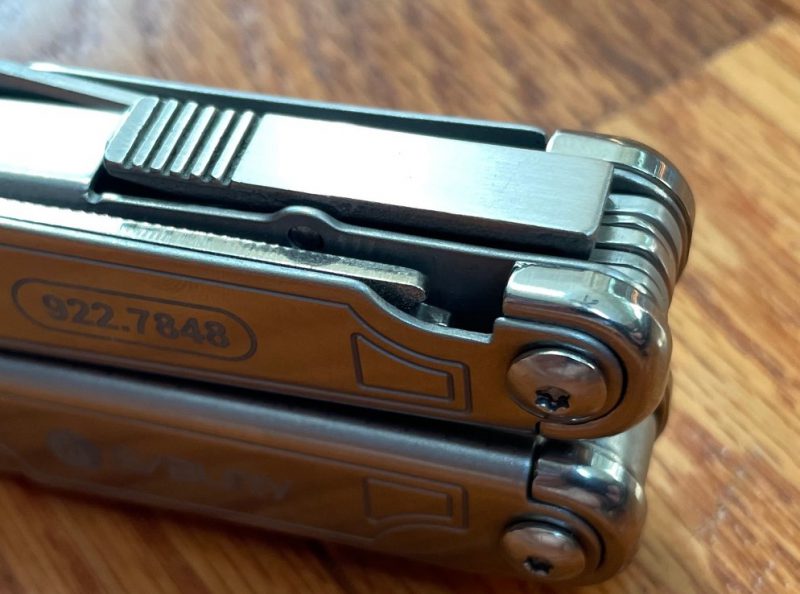
Internal tools each have a fingernail notch that needs to be engaged to fold out. When the tool was new, I found it somewhat difficult to pull the tools out. This is partly because of the tightness of the tool, partially because I keep my fingernails cut very short. In a pinch, The 1/4-inch bit can be opened, the bit extracted, and the tip of the bit used to pry the tools out. Once the tool is used a bit, I didn’t need to use this technique any longer.
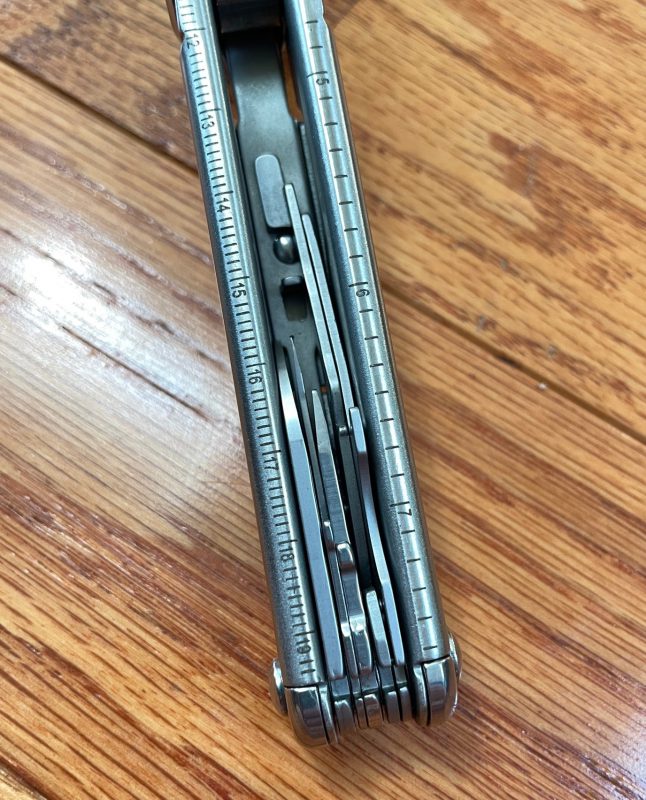
On one side, the 1/4 –inch tool bit finds its home.
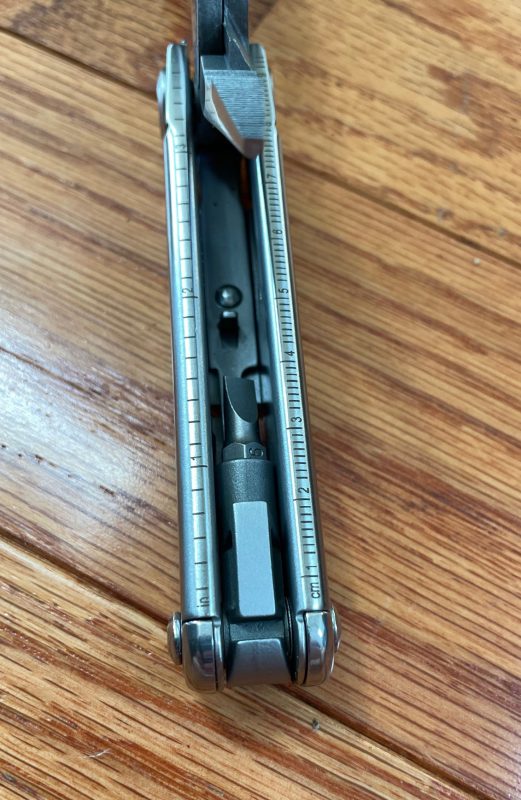
On the other side, scissors, two flat-blade screwdrivers, and the can opener hide.
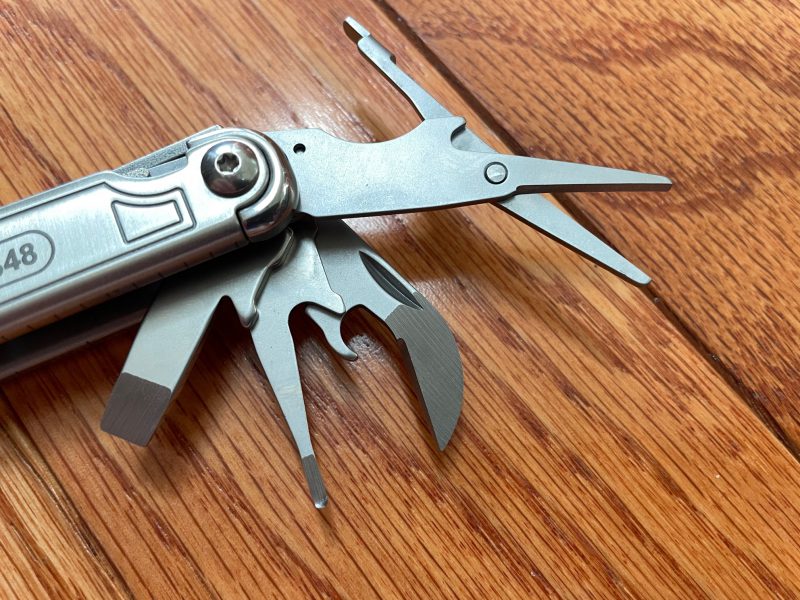
The internal tools lock in place with a back-lock mechanism. There is a slight amount of “play” when the tools are locked, but I didn’t notice any issues with tool performance.
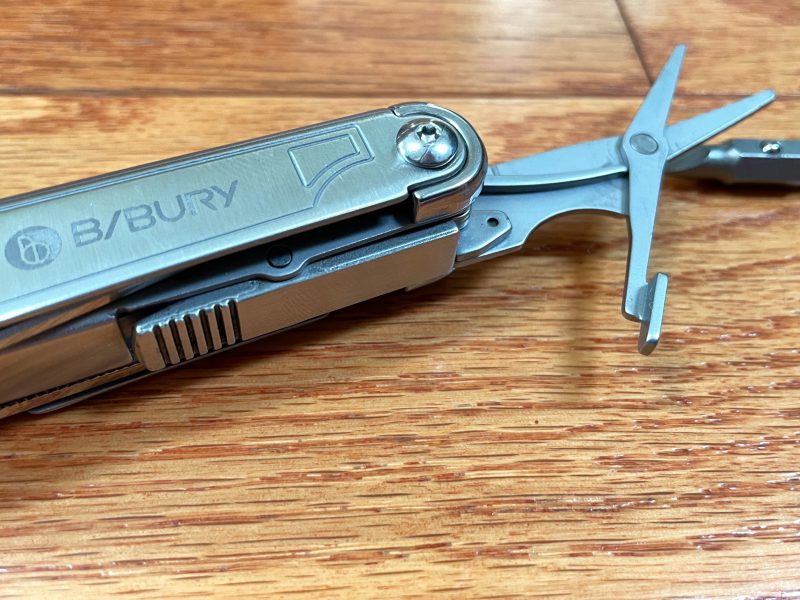
Speaking of tool performance…
The knife blades are sharp out of the box. I spent some time abusing them cutting various stuff and found that they keep an edge well. The drop-point blade easily cut through paper, cardboard, and wire jacket.
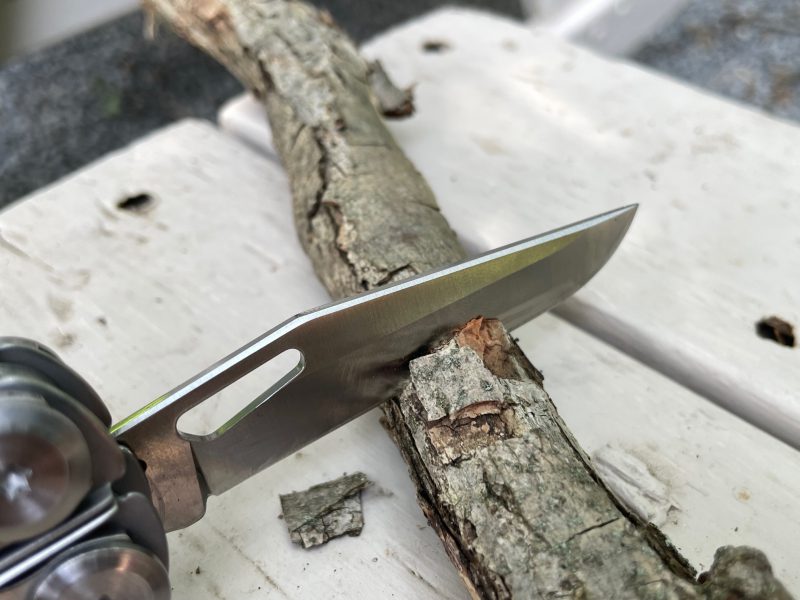
The serrated blade needed some back-and-forth sawing action to cut through most reasonable materials like nylon cord and wood, but did an adequate job.
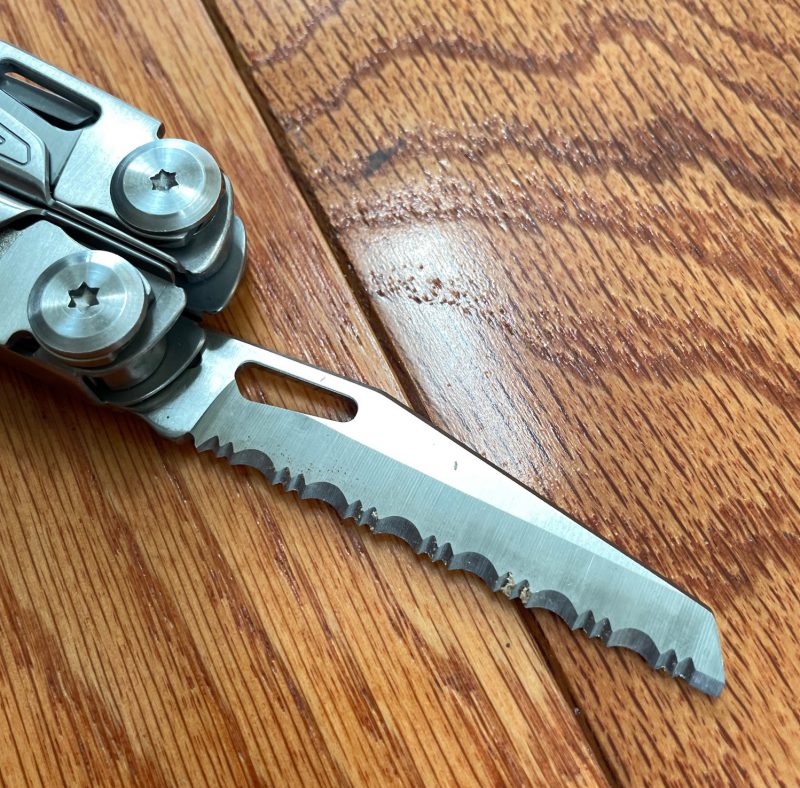
The file worked great on plastic and soft metal.
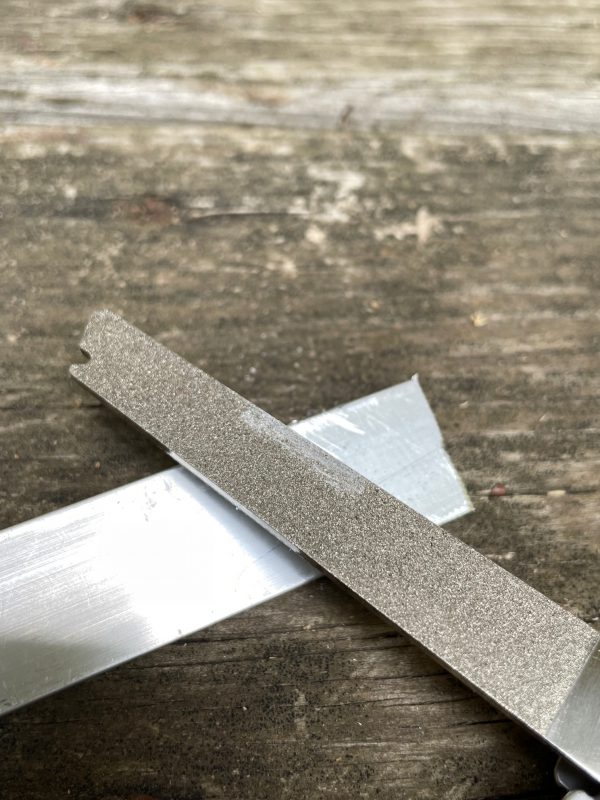
The diamond side worked wonders on my fingernails and put a keen edge on a utility knife I keep in my garage.
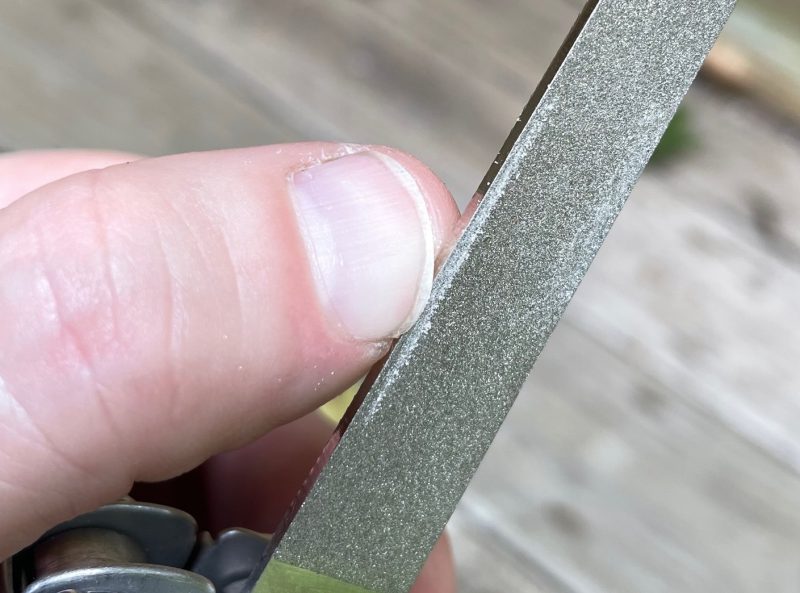
The wood saw is top-notch and worked better than my full-size wood saws.
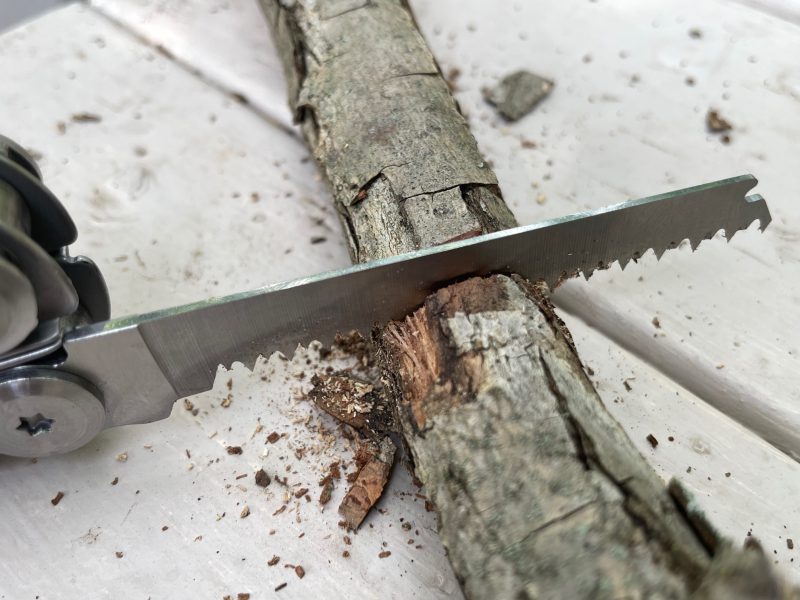
Moving on to the internal tools, the scissors are small but sharp. I had no trouble snipping paper, hair, and light-duty wire insulation.
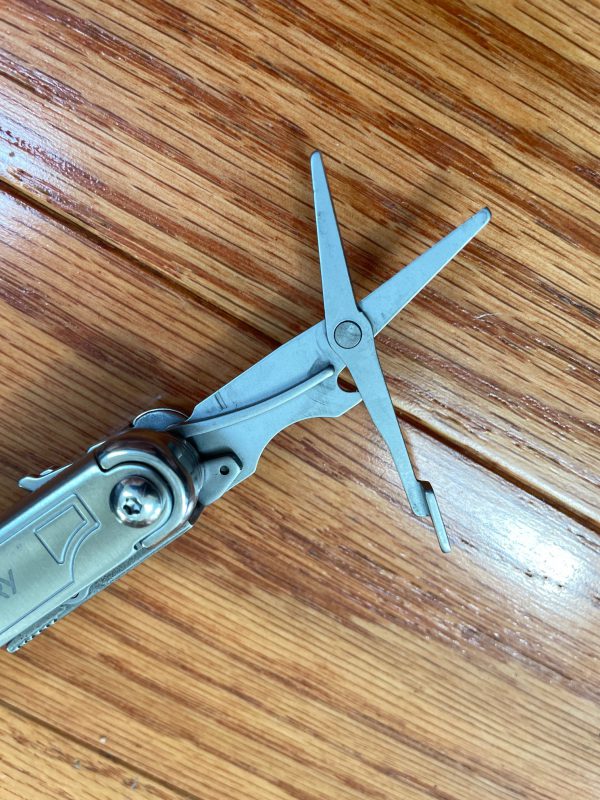
The can opener also worked well, making short work of a can of tuna. It can also be used as a bottle opener, although I didn’t have any bottles to test it. The wire stripper just below the can opener is a sharpened crescent that can slice through small gauge wire insulation easily. I was able to press wire insulation into the groove, spin the wire, then use the pliers to pull the plastic off. When I tried stranded wire, it knicked the internal strands a bit so it won’t be replacing a dedicated wire stripper, but it will work in a pinch, especially on solid conductor wire.
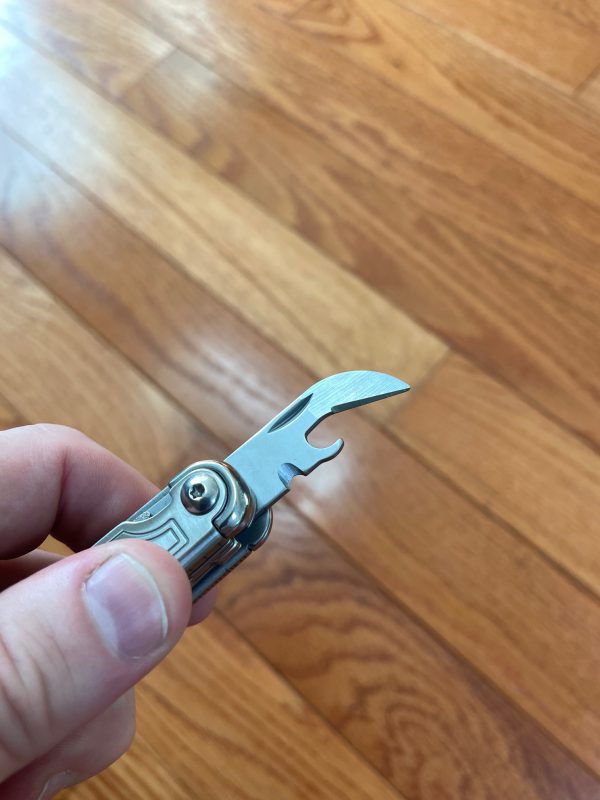
The slotted screwdrivers are ground on both sides and gripped screws well. I was able to tighten my eyeglasses with the smaller bit but noticed there was some denting of the working edge after use. In fairness, the blade tip is quite delicate so it’s consistent with some other tools I’ve used.
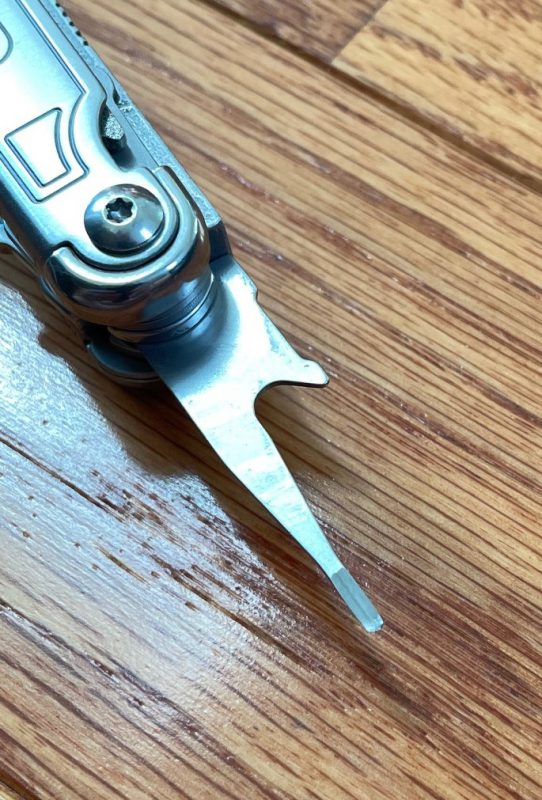
The larger screwdriver was used to tighten a few doorknob screws and pry up a loose nail with no issues.
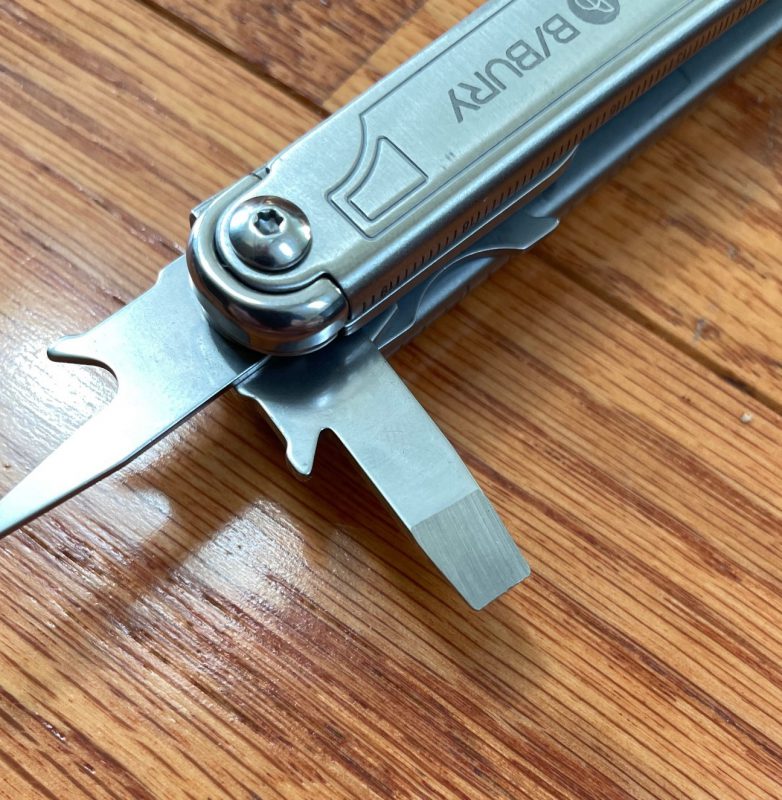
Perhaps the most innovative feature is the ¼-inch driver which accepts any standard-sized bit. I used the included double-ended bit to drive a few screws and even drill a small diameter hole in a plastic part using the Bibury multitool as a handle. Very nice. I am a bit concerned about the longevity of the bit if used for substantially heavy-duty tasks because the side walls are somewhat thin, bit, so far, so good.
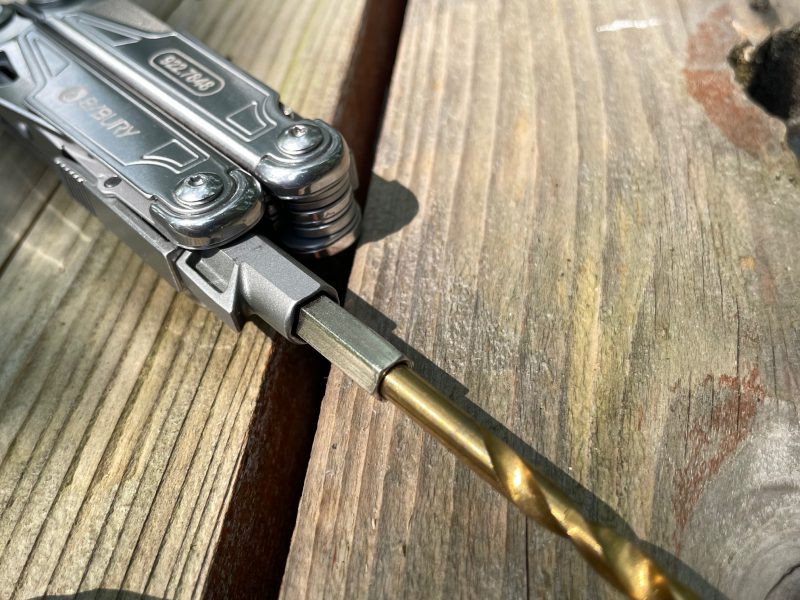
Another bit-driver issue is the lack of any retaining mechanism. The included bit has a spring ball located mid-shaft that increases the friction to prevent the bit from falling out of the tool. With bits that don’t have his feature, gravity or any outward grip on the bit will dislodge it from the driver. It would have been desirable to include spring or magnetic retention to alleviate the inevitable frustration of dripping my only T20 Torx bit into the body panels of my car.
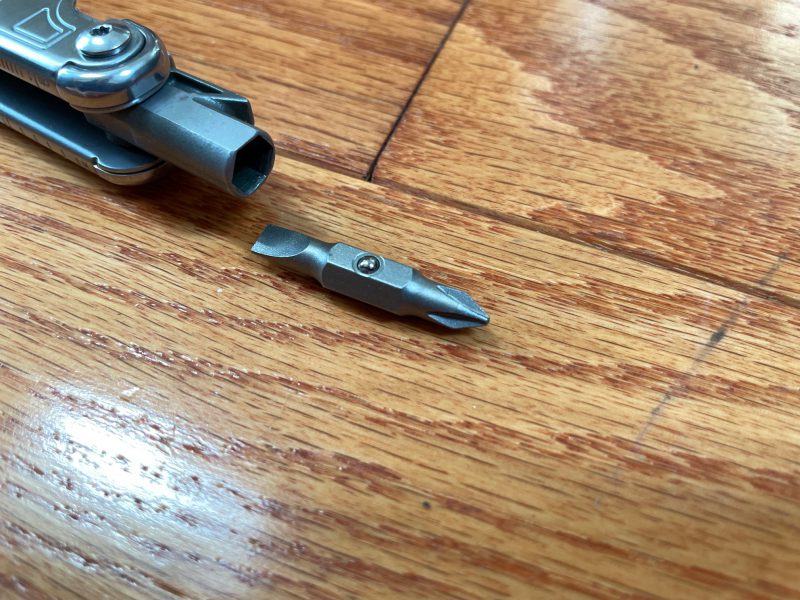
The needle-nose and “regular” pliers worked very well. I used them to grip nuts while using a socket wrench on the accompanying bolt with no slipping. The tips of the pliers were also nimble enough to snag and remove a splinter I managed to pick up during testing.
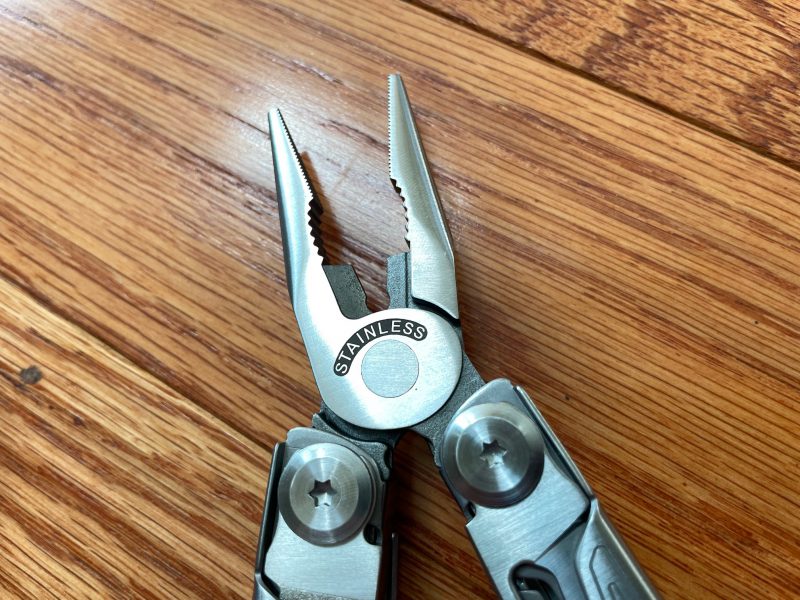
The cutters had no problems snipping through a wire coat hanger, 12-gauge wire, and a small zinc bolt without damage.
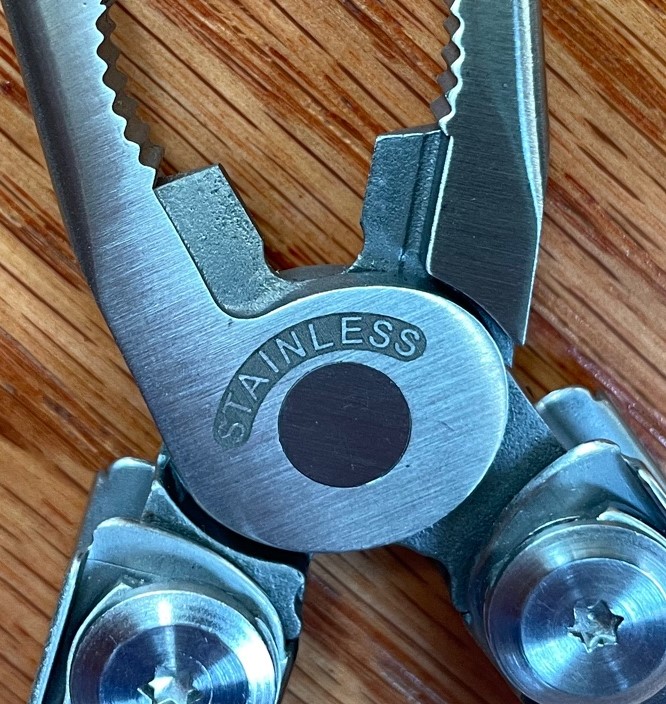
What I Like
- Good “bang for the buck” cost
- All the tools lock in place
- The full-size ¼-inch driver accepts standard, commonly available bits
What I Would Change
- Add provision for a belt clip
- Add retention to the ¼-inch bit holder
- Change Some of the tools to make them less cumbersome to deploy with short fingernails
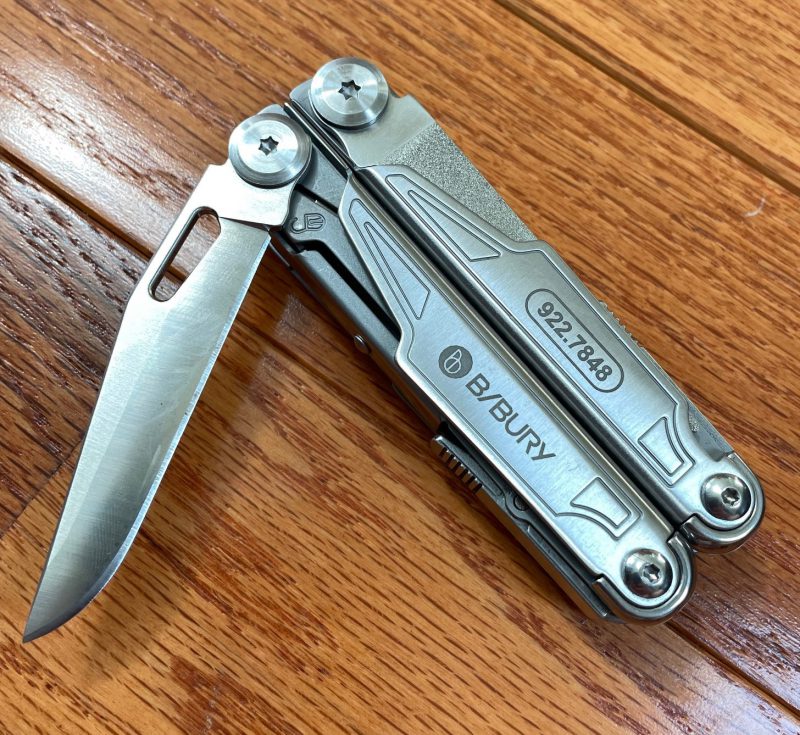
Final Thoughts
Overall, I found the Bibury 19-in-one multitool to be capable, durable, and worthy of any toolbox or pocket. At $60, it packs a serious wallop for those seeking similar functionality to a Leatherman Wave or Charge. While it won’t be replacing my beloved Charge TTI, the Bibury with its full-size ¼-inch bit driver is certain to become an EDC fan favorite!
Price: $59.99
Where to buy: Amazon (40% discount with CODE: 5URBE73U expires 12/30/2021)
Source: The sample for this review was provided by Bibury.


